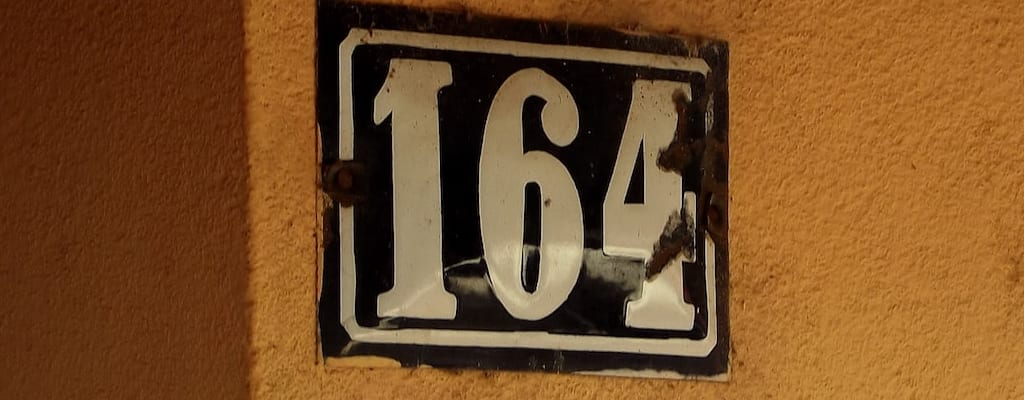opposite number: Idiom Meaning and Origin
What does ‘opposite number’ mean?
The idiom "opposite number" refers to someone who has the same position or job as another person, but works or represents a different group or organization. It is often used to compare or contrast two individuals who are counterparts in different teams or entities.

Idiom Explorer
The idiom "second fiddle" means to play a subordinate or less important role compared to someone else, often feeling overshadowed or unnoticed.
The idiom "same difference" is used to express the idea that two things may seem different but are actually quite similar or have no significant difference.
An idiom often used to describe a person who is disliked or considered bad, with negative qualities or behavior.
The idiom "play one against another" means to manipulate or exploit two or more people or groups by creating conflict or competition between them for personal gain.
"Play both sides against the middle" means to manipulate or exploit two opposing parties or groups in order to benefit oneself or reach a personal advantage. This idiom suggests a strategic move of pitting two opposing forces against each other while positioning oneself in the middle to leverage the situation for personal gain.
The idiom "pit against" means to set two or more people or things against each other or in competition. It implies a confrontational or competitive situation where one is pitted against another.
An idiom used to refer to a particular person's character, occupation, or role, highlighting its uniqueness and individuality.
The idiom "out of place" means something or someone not in the correct or suitable position, situation, or context.
The idiom "other side" refers to a different perspective, viewpoint, or position on a particular matter or issue. It implies considering alternate opinions or taking into account different aspects of a situation.
The idiom "other head" means having a different opinion or perspective, often resulting in conflict or disagreement.
Untangling the Enigma
An opposite number is a commonly used idiom that refers to someone or something similar or equivalent to another but in a different position. The origin of this idiom is uncertain, but it dates back to at least the early 19th century.
This idiom is frequently used in professional settings like politics, sports, and business to compare individuals or entities that have similar roles or functions but are on different sides of a specific situation or equation.
In politics, opposite numbers are political leaders or officials who hold similar positions in different countries or organizations. For example, the President of the United States and the Prime Minister of the United Kingdom can be seen as opposite numbers due to their similar roles as heads of state.
In sports, opposite numbers are players or teams from different countries or leagues that are considered counterparts or equivalents. For instance, in soccer, the term can be used to compare players who play the same position for different national teams or clubs.
In the business world, opposite numbers are counterparts or equivalents in different companies or industries. For example, the CEO of one corporation might have an opposite number in a rival company, someone who holds a similar role and is responsible for similar tasks.
However, the idiom "opposite number" is not limited to professional contexts. It can also be used in everyday situations to compare individuals or things with similar characteristics or roles. For example, a teacher might refer to two students who constantly compete with each other academically as each other's opposite numbers.
The idiom "on opposite sides of the barricades" can be related to the concept of opposite numbers. It describes two or more individuals or groups who hold opposing views or positions on a particular issue or conflict. It highlights the idea that while these individuals or groups may have similar roles or functions, they are on different sides of the argument or situation. In essence, they are each other's opposite numbers in terms of their opposing viewpoints or positions.
Another related idiom is "couldn't be more different." This phrase emphasizes the extreme differences between two individuals or entities. It signifies that despite having similar roles or functions, they are extremely distinct from each other in terms of their characteristics, beliefs, or behaviors. These individuals or entities can be considered opposite numbers due to the stark contrast between them.
The idiom "other side" is also related to opposite numbers. It refers to individuals, entities, or perspectives that are on the opposing side of a particular issue or situation. In the context of opposite numbers, the term "other side" denotes individuals or entities who have similar roles or functions but hold opposing viewpoints or positions. They are each other's opposite numbers on the "other side" of the argument or situation.
The idiom "opposite number" is a versatile expression used across various contexts. It captures the concept of parallelism and comparison effectively. Its application may vary depending on the context, but the idiom offers a valuable tool for expressing similarities and equivalences. It highlights both the connectedness and distinctiveness of individuals and entities in different domains.
Example usage
Examples of how the idiom "opposite number" can be used in a sentence:
- John is my opposite number at the competitor's company.
- The senator met with his opposite number from the neighboring country to discuss trade agreements.
- The scientists collaborated with their opposite numbers from around the world to tackle the global health crisis.
More "Antonyms" idioms



